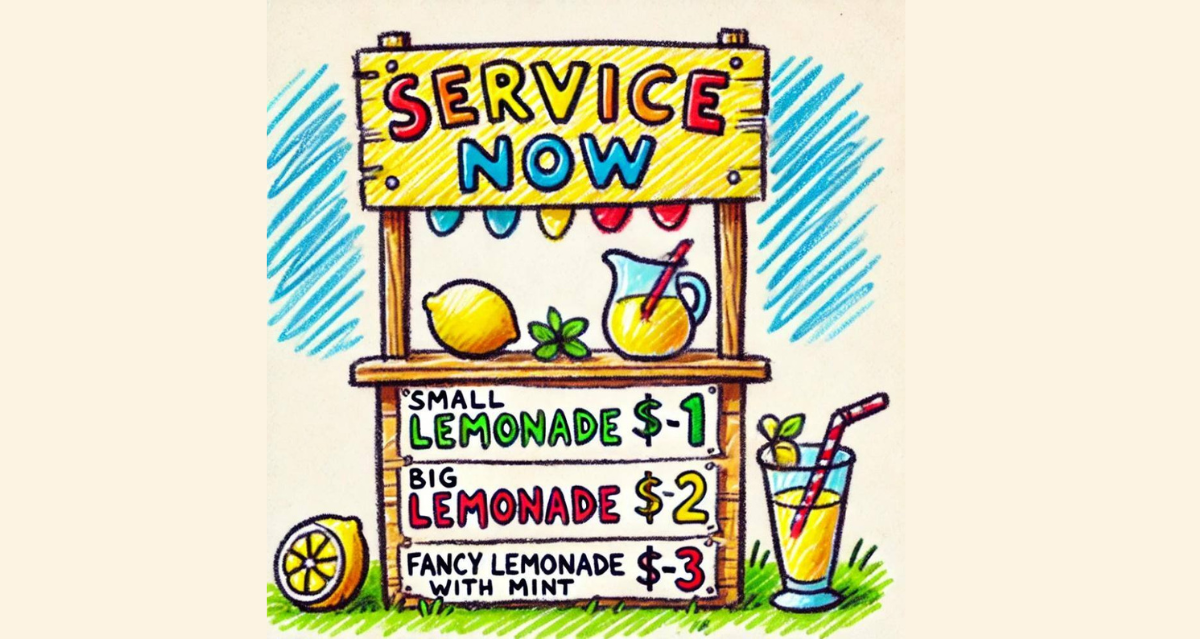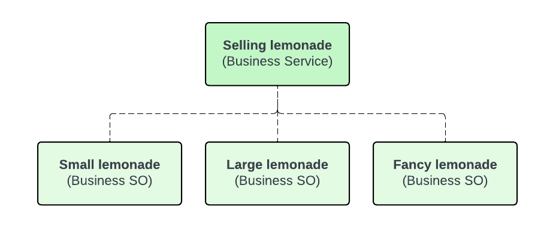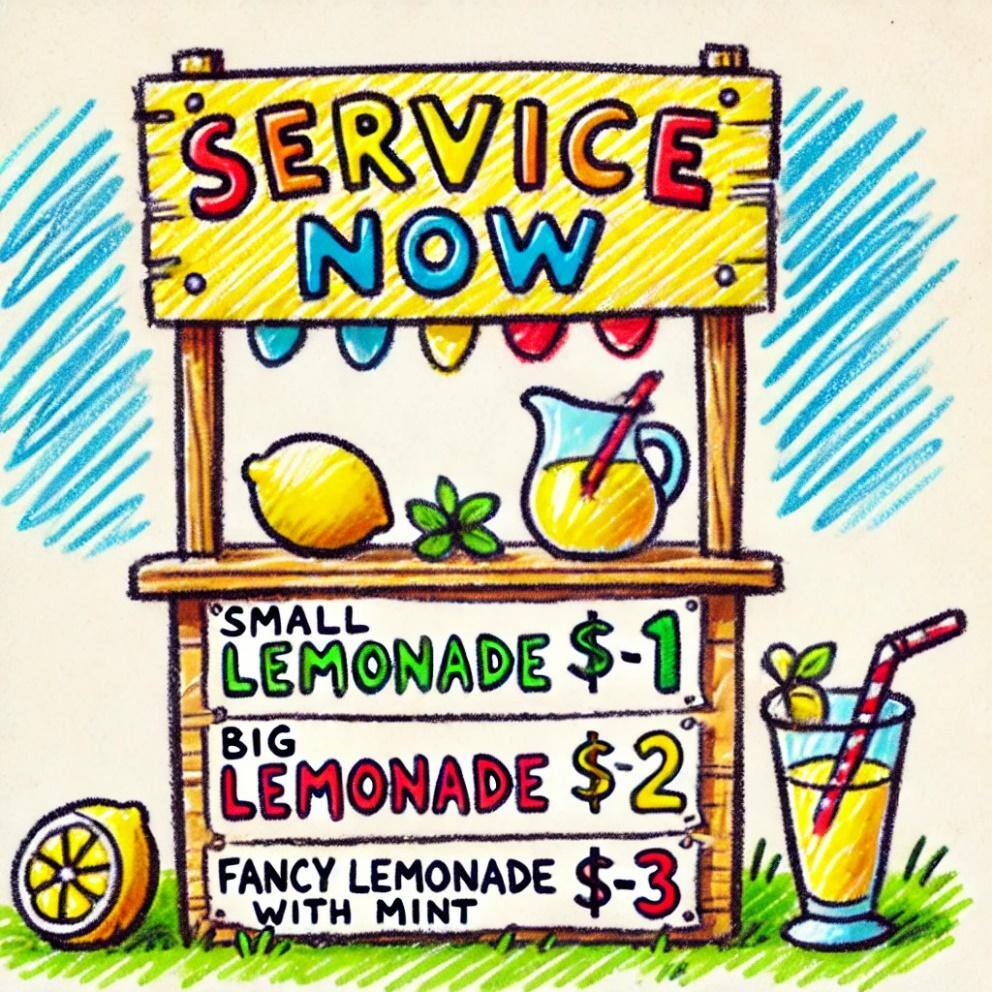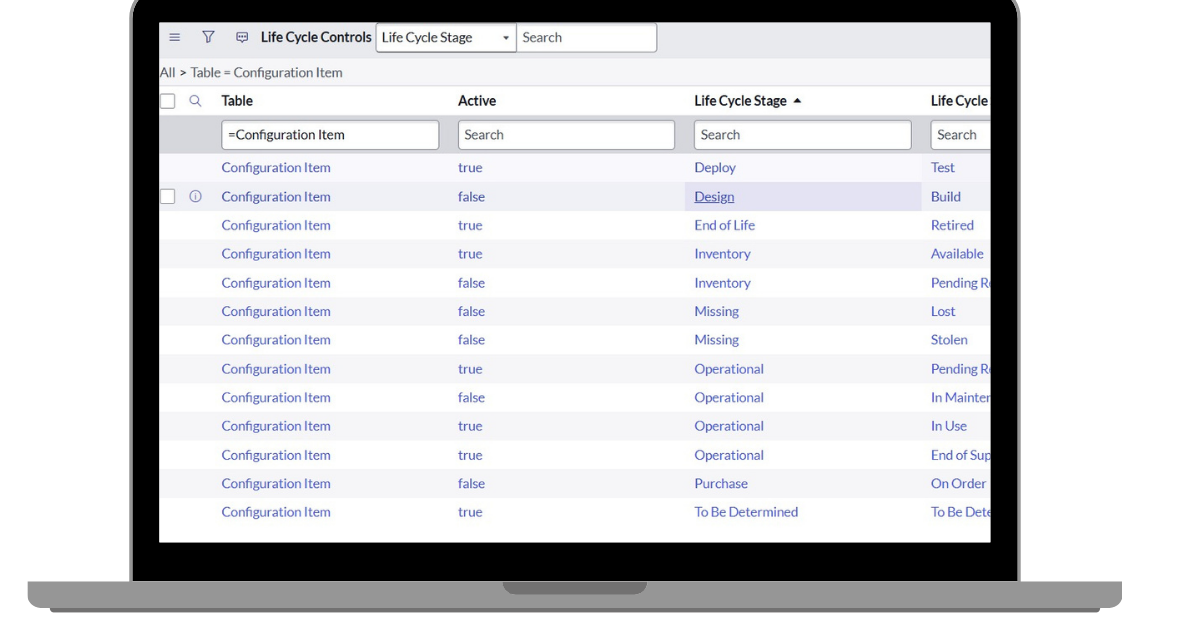Common Service Data Model 4.0 - What has changed?
With the release of Tokyo, ServiceNow published a new version of the CSDM framework. Many of you might wonder what the key differences are to the...
 Samu Lehtimaki
•
3 min read
•
Oct 9, 2024
Samu Lehtimaki
•
3 min read
•
Oct 9, 2024

Breaking down different service types through a simplified example
Business Services, Technical Services, Application Services, Business Service Offerings, and Technical Service Offerings – if you are not very experienced with ServiceNow’s CSDM framework, it is easy to get lost in the terminology and understand the differences between these service types.
So, I started to wonder if it would be possible to explain these concepts using a real-life example; something as simple as a lemonade stand. The answer is yes, but before we go there, let's first recap the high-level descriptions of different Services and Service Offerings defined by the ServiceNow Common Service Data Model (CSDM) and the domains they reside in the conceptual model.
Business Services are consumed by business users or customers and provide real value for the business.
Technical Services are usually invisible to end users and support Business Services by providing the technical functionality and infrastructure for them to function smoothly.
Application Services are logical representations of deployed systems or application stacks to support specific business functions or processes.
Service Offering is a specific option or variation of the service that consists of one or more service commitments that uniquely define the level of service in terms of availability, criticality, scope, pricing, and other factors.
In the CSDM 4.0 Conceptual Model, these service types reside in the Manage Technical Services and Sell/Consume domains.
Manage Technical Services domain represents the tables used by IT Operations Management (ITOM), such as Service Mapping and Discovery, and the portfolio of Technical Services and related Service Offerings.
Sell/Consume domain represents the portfolio of Business Services and related Service Offerings which may consume elements from the Manage Technical Services -domain. This domain is commonly utilized by Service Portfolio Management (SPM) and Customer Service Management (CSM) applications.
The CSDM Conceptual Model illustrates how domains interact and work together to manage your services and applications in the ServiceNow platform and how different roles consume this data model.
Let’s break down these service types using the lemonade stand as an easy-to-understand example.
In this analogy, your Business Service would be the lemonade you are selling.
This is what you provide to your customers. It's the product they consume and why they come to your lemonade stand.
However, to make lemonade, there is a lot of behind-the-scenes work involved which is not noticeable to your customers but keeps things running smoothly.
To make lemonade, you will need some infrastructure like the stand, and resources such as water and lemons. As technical services are often broader categories that manage a specific aspect of operations, the Technical Services in this example would be:
How about the Application Services? These are the tools that help you to sell your lemonade, and operate your lemonade stand. They bridge the gap between business (selling lemonade) and infrastructure (stand, water, lemons). Some examples in this analogy would be the cash register system and online ordering app.
To complicate things a bit; If your lemonade stand would expands its operations to different cities or even countries, it might be the case that another software or applications would be used to sell lemonade or the infrastructure would be slightly different. In this case, a new set of Application Services would be in place and the instance (city or country) of the service would be identified in the name.
These Application Services would then be related to Business Application, which is a logical representation of all instances, software, and infrastructure configured to provide business functionality.

Like there are different types of services, there are two types of Service Offerings; Business and Technical -focused.
Business Service Offerings are the different options of the service you provide (lemonade) that customers see when they visit your lemonade stand. They each have their characteristics and price.
For example, you could have three different options in your menu:

Technical Service Offerings are the operational side of your business. The elements that you need to keep your lemonade stand running smoothly. They are related to your Technical Services that are related to supply, equipment, and utility
For example:
The CSDM framework might seem complex and confusing at first, but when you approach it through some simple examples and use cases, it becomes much easier to digest.
And much like running a successful lemonade stand, understanding the CSDM framework is about seeing how all the pieces fit together to create something greater than the sum of its parts.
Here are some articles you might find helpful:
Common Service Data Model 4.0 - What has changed
Implementing CSDM into ServiceNow
Watch the webinar recording on You Tube where we’ll explore why data quality in the CMDB is the critical success factor for any AI initiative on the ServiceNow platform


With the release of Tokyo, ServiceNow published a new version of the CSDM framework. Many of you might wonder what the key differences are to the...

In CSDM (Common Service Data Model) version 4 ServiceNow introduced the so-called “Life Cycle fields” that are to replace all legacy status fields...

With Service Operations, we are merging the ITSM and ITOM workflows and fostering comprehensive infrastructure management, synchronizing workflows...